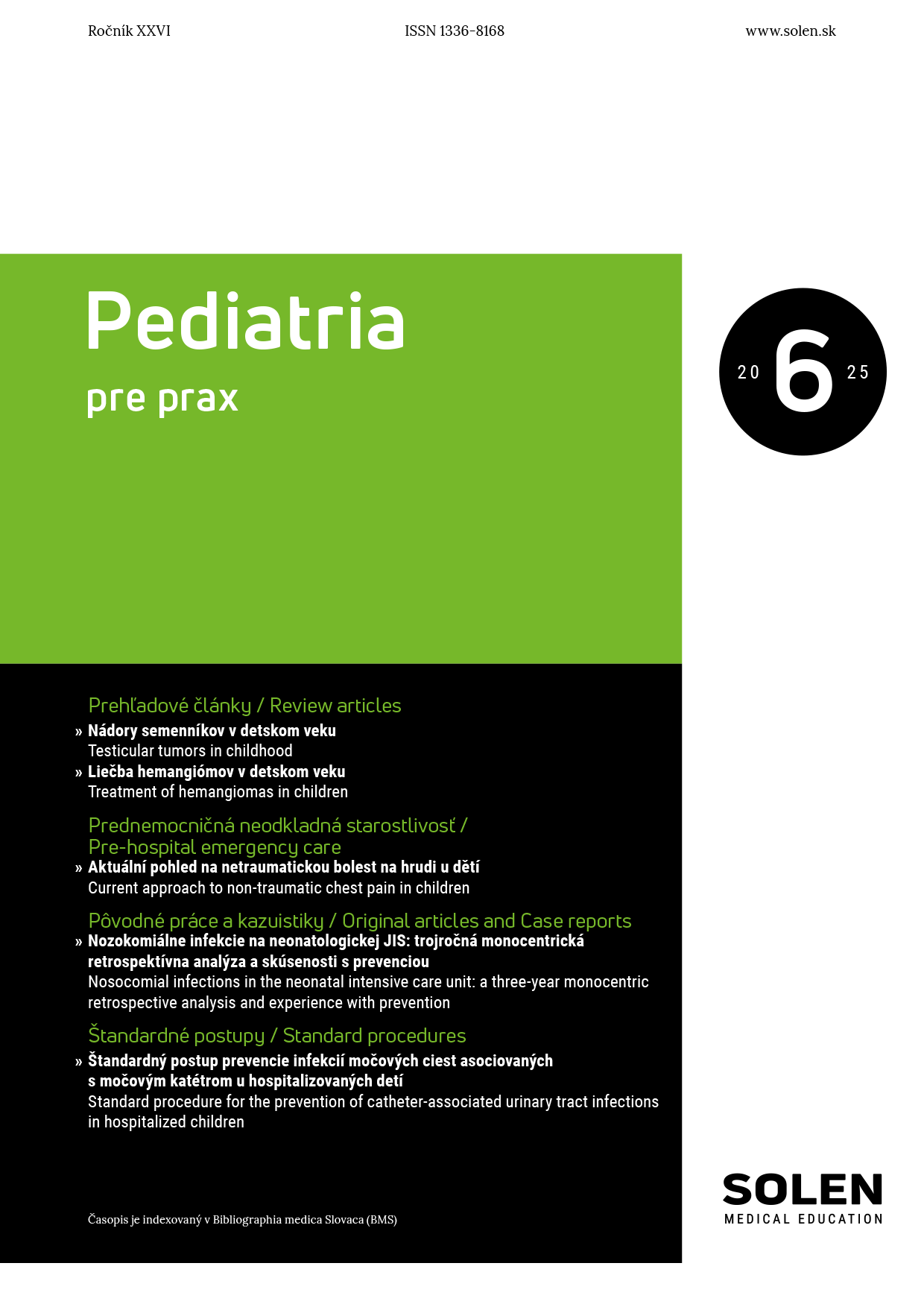Urologie pro praxi 4/2023
Zvýšenie presnosti diagnostiky karcinómu prostaty glykoprofiláciou vybraných sérových onkomarkerov: klinický a ekonomický dopad na pacienta
Ing. Tomáš Bertók, PhD., MUDr. Roman Sokol, PhD., MPH, doc. MUDr. Juraj Fillo, CSc., Ing. Ján Tkáč, DrSc.
V práci stručne opisujeme možnosti využitia metód tzv. tekutej biopsie, teda detekcie vysoko nádorovo-špecifických markerov z telových tekutín, na diagnostiku karcinómu prostaty (CaP). V tomto prípade je dôležité hodnotiť biomarkery, ktoré sú orgánovo- špecifické, ako napríklad kalikreíny (rôzne formy PSA), avšak tie nie sú rakovinovo-špecifické. Na zvýšenie spoľahlivosti diagnostiky CaP je preto nutné použiť biomarkery, ktoré sú orgánovo-špecifické a zároveň rakovinovo-špecifické, k takým biomarkerom patrí glykoprofilácia fPSA (free PSA, free prostate-specific antigen/voľný prostatický špecifický antigén) vo forme Giasay (glycopsy immunoassay) testu. Giasay test poskytuje vysokú hodnotu AUC = 0,82 (AUC, area under curve/plocha pod ROC krivkou; ROC, receiver operating curve/operačná charakteristika prijímača), oveľa vyššiu v porovnaní s kalikreínovými testami (vrátane PHI, prostate health index/index zdravia prostaty), a vopred odhalí aj kastračne rezistentnú formu či veľmi skoré štádiá ochorenia. Zároveň Giasay test preukáže podľa výsledkov validácií 63–70 % negatívnych prípadov biopsií v populácii. Tieto hodnoty prevyšujú na Slovensku a v Čechách dostupné laboratórne metódy využívané na skríning a diagnostiku CaP.
Kľúčové slová: Giasay test, glykoprofilácia fPSA, glykány, tekutá biopsia, diagnostika, biomarkery, biopsie, karcinóm prostaty.
Increasing the accuracy of prostate cancer diagnostics by glycoprofiling of selected serum oncomarkers: clinical and economic impact per patient
In this work, we briefly describe the possibilities of using the so-called liquid biopsy i.e. the detection of highly tumor-specific markers from body fluids, for the diagnosis of prostate cancer (CaP). For this purpose, it is important to use biomarkers that are organ-specific, such as kallikreins (different forms of PSA). Unfortunately, such biomarkers are not cancer-specific. To increase the reliability of CaP diagnosis, it is therefore necessary to use biomarkers that are organ-specific and at the same time cancer-specific, and such biomarkers include glycoprofiling of fPSA (free form of prostate specific antigen) in the form of Giasay (glycopsy immunoassay) test. The Giasay test provides a high value of AUC = 0.82 (AUC – area under curve i.e. the area under receiver operating curve), much higher compared to kallikrein tests (including PHI, prostate health index), and it also reveals the castration-resistant form or very early stages of the disease in advance. At the same time, the Giasay test reveals, according to the validation results, 63–70% of negative cases of biopsies in the population. These values exceed the laboratory methods available in Slovakia and the Czech Republic for the screening and diagnosis of CaP.
Keywords: Giasay test, fPSA glycoprofiling, glycans, liquid biopsy, diagnostics, biomarkers, biopsies, prostate cancer.

















